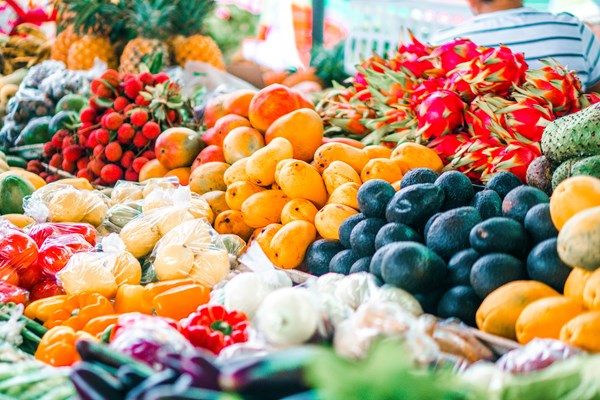Investing in local food helps address food insecurity and build a more sustainable future
Feb 12, 2025

Hawaiʻi continues to face food insecurity challenges, with 30% of households struggling to access food — a problem exacerbated by the lingering effects of the COVID-19 pandemic and more recent 2023 Maui wildfires. A recent Hawaiʻi Food Bank report revealed severe food insecurity, particularly among Native Hawaiians and Pacific Islanders.
The Hawaiʻi Food Systems Summit, held in December 2024, highlighted the need for systemic changes to increase resilience and sustainability. State food system planner Amanda Shaw is leading the new Sustainable Food Systems Working Group, which is tasked with identifying gaps and creating policy recommendations and is expected to release a report in a few months outlining policy recommendations.
One success story is the DA BUX program, which Ulupono Initiative supports and refers to as a “triple win” that benefits Hawai‘i farmers, helps local families, and strengthens the island economy. The program doubles the spending power of SNAP beneficiaries for local food purchases. A new annual $1.5 million state appropriation last year was leveraged to secure an additional $8.4 million in U.S. Department of Agriculture funding. Over the next 3 years, the DA BUX program could generate approximately $25 million in local food sales for retailers.
“The DA BUX program is a prime example of how strategic investments can create a ripple effect of positive economic change for farmers,” said Jesse Cooke, Ulupono’s vice president of investments and analytics. “This program and other smart, impactful approaches continue to move Hawaiʻi toward a more resilient and food-secure future.” As advocacy groups and policymakers continue working toward a more sustainable, equitable food system that prioritizes resilience, workforce development, and disaster preparedness, Ulupono Initiative strongly supports programs like DA BUX that are helping to alleviate food insecurities in the state while helping to strengthen local agriculture.

